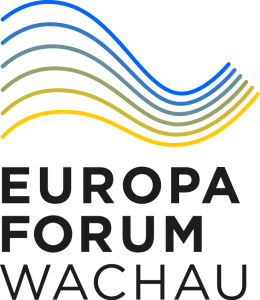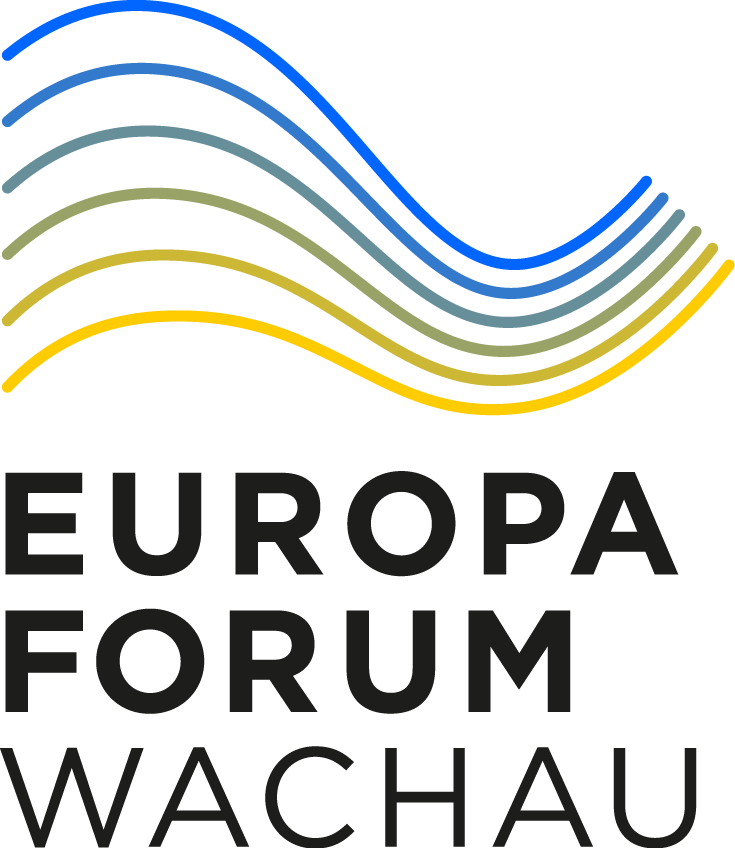LH Mikl-Leitner: "We want to continue to guarantee security, peace and prosperity, and that is only possible with a strong EU"
On the occasion of Europe Day, which takes place annually on 9 May, the motto of yesterday's all-day event at the Sparkassensaal Wiener Neustadt was "Invest in Europe". In the morning, almost 300 pupils from various schools in Lower Austria took part in workshops on the topic of "financial literacy" - financial education for young people in Europe. In the evening, experts from business, science and politics met to discuss the future development of the European Union under the motto "Invest in Europe".
The event was opened musically by the saxophone quartet "SaxArte" with the European anthem. Governor Johanna Mikl-Leitner reminded the audience that "the European anthem celebrates its 200th anniversary today, 7 May 2024." Parts of it were written in Baden, Lower Austria, "just one element of Lower Austria's connection with Europe", said the Governor, who emphasised right at the beginning: "We want to continue to guarantee security, peace and prosperity, and that is only possible with a strong EU."
Lower Austria had benefited from EU accession in 1995 like no other region, said Mikl-Leitner, who herself grew up as a "child of the border region on the Iron Curtain in the Weinviertel" and emphasised: "That is why I am very well aware of the opportunities that opened up with the fall of the Iron Curtain 35 years ago, with EU accession and EU enlargement 20 years ago." Lower Austria has moved from the edge of Europe to the centre of the continent and has developed positively and successfully. Every fifth job and every second euro depended on exports and therefore to a large extent on the EU, and Lower Austria also received 100 percent of all EU funding, which was used to implement flagship projects such as technology centres and technopoles or the cross-border health centre Healthacross MED Gmünd as a pioneer in Europe.
"Since accession, we have utilised 665 million euros in regional funding, supported around 6,500 projects with EU funds and thus triggered around four billion euros in investments," said the Governor, who emphasised: "This has created 15,000 jobs, secured 50,000 jobs and we have received an additional twelve billion euros for the agricultural sector." In the current 2021 to 2027 funding period alone, Lower Austria has received around 168 million euros in regional funding for research, technology and innovation, for cross-border projects, for climate-neutral business and, above all, for maintaining competitiveness.
Strengthening competitiveness was also one of the central focal points chosen at the Conference of Provincial Governors chaired by Mikl-Leitner, "where we must free ourselves from bureaucratic corsets - away from requirements, prohibitions and over-regulation and towards more freedom." Other key points are close cooperation between the individual member states in defence, as well as the implementation of effective external border protection, "where important decisions such as the strengthening of Frontex have been taken and asylum procedures can therefore be handled at the external borders." A sensible climate policy is just as important, she said, and the economy and ecology must be harmonised here. A final key point is that sectors and industries such as agriculture and the medical sector "remain on our doorstep in Europe in order to guarantee security of supply." The Governor was convinced that "this Europe is supported by the regions and it is therefore important that Europe continues to develop in line with the needs and wishes of the regions. The Governor saw a need for investment above all "in people's trust in the European Union" - this could be strengthened by setting clear priorities in European policy and doing everything "to be able to continue to guarantee people security, peace and prosperity."
Mikl-Leitner also spoke about the upcoming EU elections on 9 June, which she described as a "directional decision and more important than ever before". She wished "that everyone would go to the polls and vote for the sensible forces that can unite and strengthen Europe", but not for forces that want to "smash the EU with Öxit fantasies or turn Europe into a green NGO." People's voting decisions will not only determine the composition of the EU Parliament, but also the future direction of the Union. She emphasised that it was therefore important to keep making people aware of what had developed in Europe, Austria and also in Lower Austria thanks to the European Union.
The city of Wiener Neustadt was already committed to the idea of Europe decades before the EU, said Mayor Klaus Schneeberger in an interview on the occasion of the Europe Day celebrations. "Because this peace project is in the best hands in this city, as Wiener Neustadt was the most destroyed city in Austria after the Second World War - 18 houses alone remained undamaged." It is also no coincidence that Wr. Neustadt was named a European city back in 1975, said Schneeberger, and the city has always been intensively involved "because we know how important the idea of Europe is."
Regarding the EU elections, the mayor said that the main task was to "convince young people to vote." Young people need to be made aware of how important membership of the EU is. On the one hand, it must be shown that "it is not a matter of course to be able to study anywhere in the world or travel through Europe without a passport." On the other hand, we need the voices of young people, because otherwise "minorities will rule over us at some point."
Motivating people to get involved in the EU is also one of the aims of the Europa-Forum Wachau, which is taking place for the 28th time this year from 20 to 22 June at Göttweig Abbey, said Martin Eichtinger, President of the Europa-Forum. In recent years, a major citizen participation process had been launched, "where thousands of Lower Austrians were able to give their opinion on Europe, formulate ideas and also make demands on Europe." This year, a Europa-Forum Wachau fan community was founded - the 'Europa-Forum Wachau Visionaries'. They visited all of Lower Austria's neighbourhoods and once again collected ideas, which they will discuss with experts at the Europe Forum and also bring back to Brussels. "We have and will confront those responsible in the European Parliament and the Commission with the concerns of our fellow countrymen," said Eichtinger, who concluded by providing information about this year's programme.
Following the speakers, yesterday evening's guests listened to a keynote speech by university professor Daniel Varro on the topic of "Looking to the future of Europe". He posed the question of what Europe needs to do to regain its former strength and competitiveness. According to Mr Varro, this requires "investing in people and their innovative strength". This opinion was also underpinned in the following panel. Here, Varro discussed the necessary future investment areas in which the EU must prioritise with Gerda Holzinger-Burgstaller, CEO of Erste Bank, Karl-Heinz Strauss, CEO of PORR AG, and Christian Wigand, spokesperson for the European Commission.

